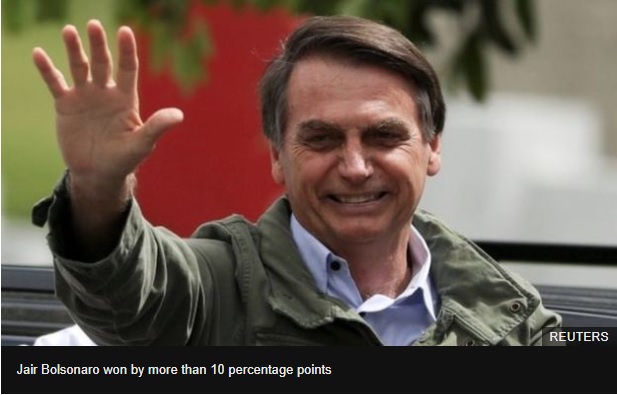
Far-right candidate Jair Bolsonaro has won a sweeping victory in Brazil's presidential election.
Mr Bolsonaro won 55.2% of the votes cast against 44.8% for Fernando Haddad from the left-wing Workers' Party, the Brazilian electoral authority reported.
Mr Bolsonaro campaigned on a promise to eradicate corruption and to drive down Brazil's high crime levels.
The election campaign has been deeply divisive. Each camp argued that victory for the other could destroy Brazil.
What does it mean?
Mr Bolsonaro's victory constitutes a markedly rightwards swing in the largest democracy in Latin America, which was governed by the left-wing Workers' Party for 13 years between 2003 and 2016.
For the past two years, the country has been led by a conservative, Michel Temer, following the impeachment of President Dilma Rousseff. But Mr Temer has proven deeply unpopular with Brazilians.
With the outgoing president's approval rating at a record low of 2%, voters clamoured for change but they were deeply divided on which way that change should go.
Mr Bolsonaro's convincing 10-percentage-point victory means the vision he laid out to voters of a Brazil where law and order and family values would be made the priority won out.

